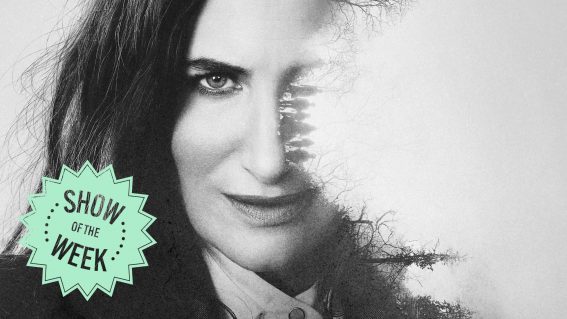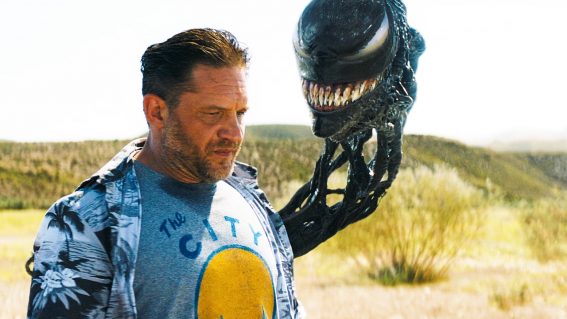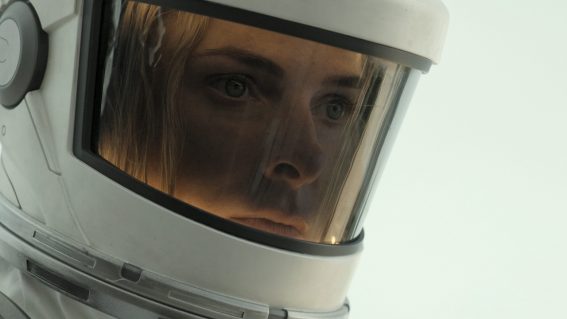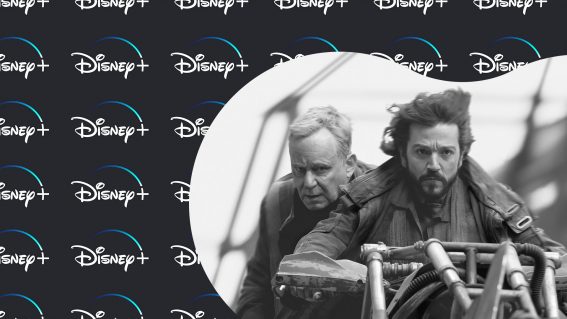Netflix’s Blockbuster is comfy, quaint, and in on the joke

We’re all drowning in content—so it’s time to highlight the best. In her column, published every Friday, critic Clarisse Loughrey recommends a new show to watch. This week: a cannibalistic new Netflix comedy about the last remaining Blockbuster rental store, with a focus on human connection.
Netflix releasing a sitcom about the last Blockbuster standing, considering the chain of video rental stores was almost singlehandedly annihilated by said streaming service, is a little like sharks putting on a play for the fish they’re about to devour. Does it feel like Netflix is trying a little too hard to be “in on the joke”, like when celebrities painfully laugh along with their impressionists on Saturday Night Live? Maybe. But if the irony hasn’t already taken you out, there’s a lot to recommend about Blockbuster.
Vanessa Ramos’s first show as a creator, after writing stints on both Brooklyn Nine-Nine and Superstore, attempts to fill the gap left behind by both those stalwart comfort shows. It’s rooted in the lives of ordinary people, working ordinary (or, at least, formally ordinary) jobs, crafting high-stakes hijinks out of ordinary situations.
I can understand why shows like The Office sometimes seem guilty of tacitly approving of worker exploitation by glamourising the idea that horrible bosses are actually a source of personal enrichment (there’s a “The Office Experience” now! Why would anyone actively opt into that misery?). But they simultaneously offer an immense sense of security. No matter how awful your job is, there will always be something to laugh about.
Blockbuster, in particular, applies that kind of gentle morale boost to the world of small business. As one employee sagely points out, Blockbuster was once also a massive corporate chain that pushed out independent stores and was named after the type of Hollywood product that crowds out small and mid-budget films. Again, you’re going to have to swallow that irony down like a bitter pill if there’s any hope of enjoyment here.
But since there’s no more Daddy Blockbuster handing out orders, the entire work of running the store has now fallen to manager Timmy Yoon (Randall Park). He’s not only required to tackle the usual obstacles of commercial ownership, but specifically commercial ownership in an already decreased industry. The only thing he’s got in his back pocket is nostalgia and the meagre promise of genuine, human connection.
Ramos, too, is relying heavily on her audience’s rose-tinted memories—and not only for Blockbuster itself, which, for many (myself included), was as much a social space as a retail one. Her series reestablishes the kind of traditional sitcoms Netflix has largely tried to overwrite with its teen shows, crime docs, and prestige dramas. Blockbuster is, intentionally, quite plainly shot. It’s completely overlit and consists mostly of the camera cutting back and forth between two characters in conversation. There’s an unadventurous will-they-won’t-they dynamic built between Timmy and his right-hand woman Eliza (Brooklyn Nine-Nine’s Melissa Fumero).
The characters mostly communicate through on-trend pop culture references, though I enjoyed how niche they became in the hands of Tyler Alvarez’s Carlos, the store’s resident film buff and aspiring Quentin Tarantino. In one scene, he boasts that his celebrity crushes consist of Tessa Thompson in the Taika Waititi-Rita Ora throuple, Indya Moore in Escape Room 2, and Brad Pitt in Benjamin Button, specifically when he’s old. Does it ever feel like the Netflix overlords put in certain demands to mention their products? Surprisingly not! Eliza may talk at length about a popular Korean drama called Trout Royale—clearly a stand-in for Squid Game—but direct mentions of the streaming service feel almost unnaturally absent.
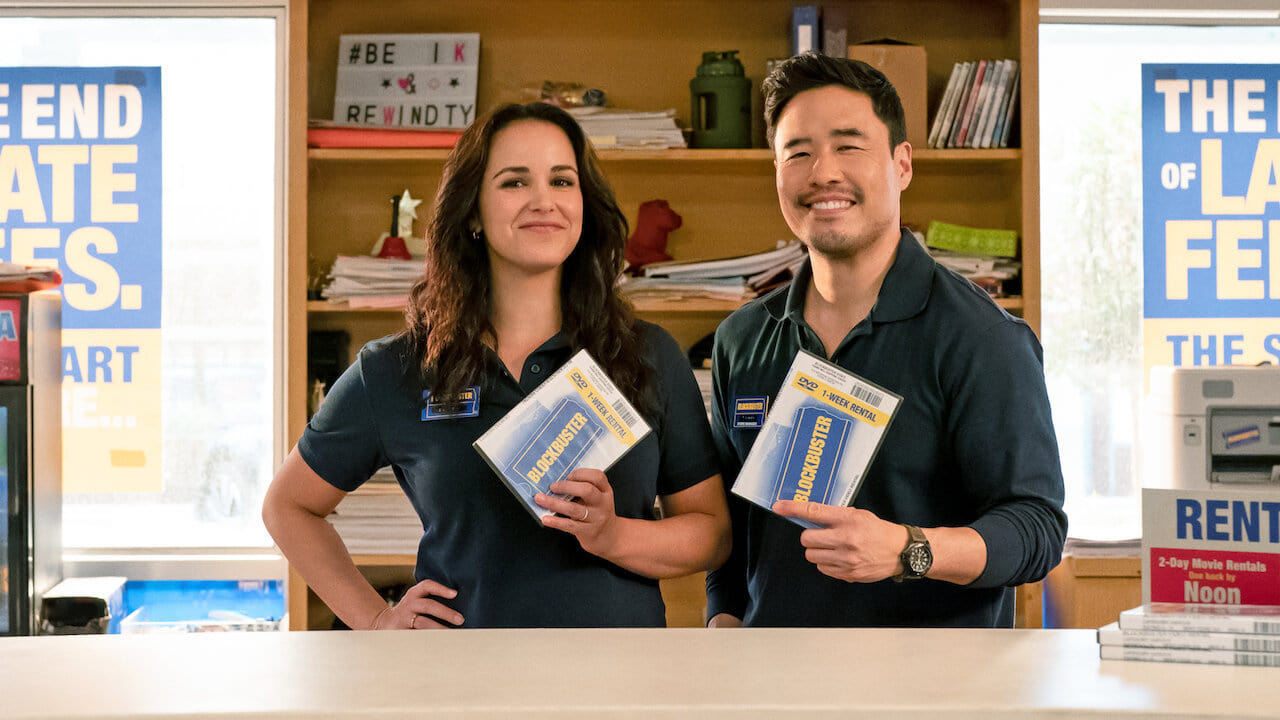
Most crucially, the toils of Ramos’s characters feel sincere and emotionally grounded. When Eliza confesses that “divorce is traumatising”, it hits its target, and there’s no doubt over why she might be inclined to give her cheating husband a second chance. Or a third. Or a fourth. When Hannah (Madeleine Arthur), one of the younger employees, is caught washing plastic cups so she can reuse them later, it becomes clear the habit’s grown out of a lifetime of financial struggles.
When Carlos and his crush discuss their queer awakenings—Hook, The Addams Family, and Y tu mamá también—it’s merely one minor detail of a show that doesn’t constantly self-congratulate itself for its LGBTQ+ representation. Blockbuster may feel quaint, but it’s real. And when a recently dumped customer, having been personally recommended Under the Tuscan Sun by Timmy, yells “algorithms can suck it!”—you might, even for a moment, actually believe them. That’s unless the show was recommended to you by the algorithm.



